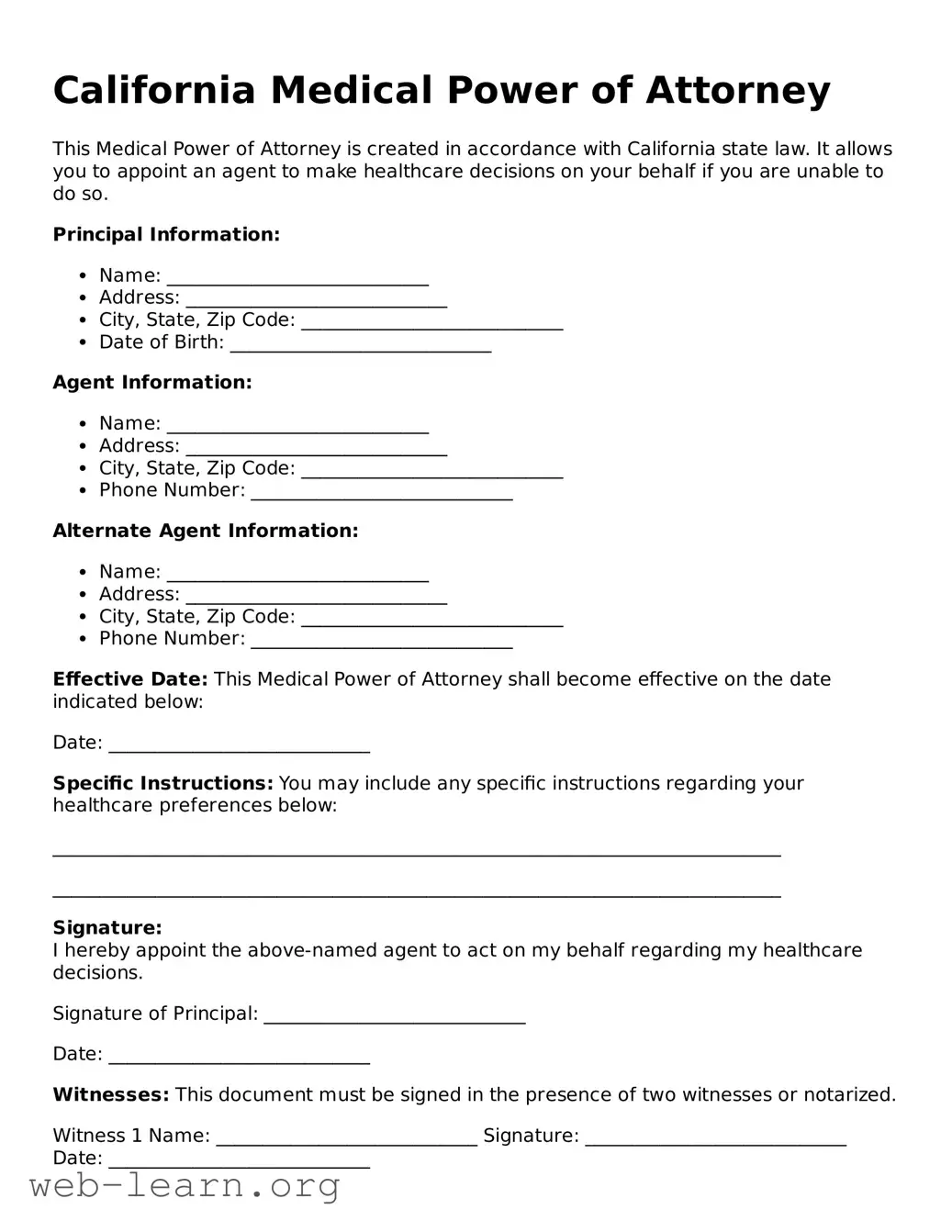California Medical Power of Attorney
This Medical Power of Attorney is created in accordance with California state law. It allows you to appoint an agent to make healthcare decisions on your behalf if you are unable to do so.
Principal Information:
- Name: ____________________________
- Address: ____________________________
- City, State, Zip Code: ____________________________
- Date of Birth: ____________________________
Agent Information:
- Name: ____________________________
- Address: ____________________________
- City, State, Zip Code: ____________________________
- Phone Number: ____________________________
Alternate Agent Information:
- Name: ____________________________
- Address: ____________________________
- City, State, Zip Code: ____________________________
- Phone Number: ____________________________
Effective Date: This Medical Power of Attorney shall become effective on the date indicated below:
Date: ____________________________
Specific Instructions: You may include any specific instructions regarding your healthcare preferences below:
______________________________________________________________________________
______________________________________________________________________________
Signature:
I hereby appoint the above-named agent to act on my behalf regarding my healthcare decisions.
Signature of Principal: ____________________________
Date: ____________________________
Witnesses: This document must be signed in the presence of two witnesses or notarized.
Witness 1 Name: ____________________________ Signature: ____________________________ Date: ____________________________
Witness 2 Name: ____________________________ Signature: ____________________________ Date: ____________________________
This document is not valid unless witnessed or notarized, as required by California law.
